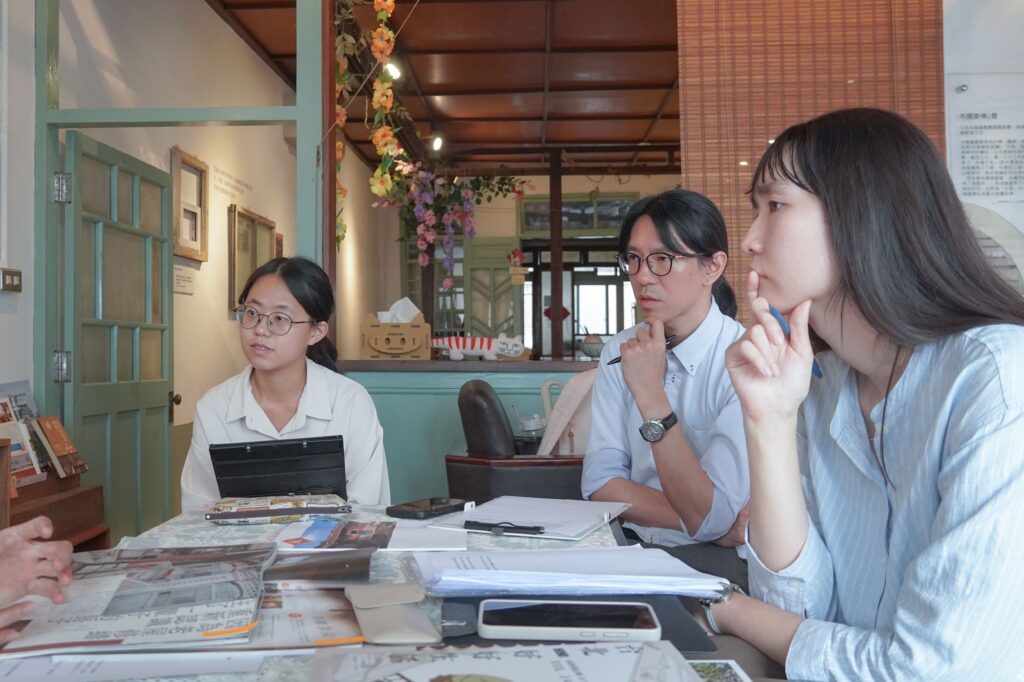Creating a ‘Museum of Life Stories’:
Restoring the Soul of Xinhua Old Street Through Design Thinking
“An old house tells its own story. Even if you do nothing but safeguard its memories, that alone can move people deeply.” Looking back at the revitalization of Xinhua Old Street, CEO Su Wan-t’ing offers a broader perspective, suggesting that the key to local regeneration lies in finding contemporary roles for old houses and meeting the functional needs of surrounding neighborhoods, thereby building a practical operational model that integrates cultural atmosphere with commercial value.
The transformation of ‘Huisheng Hospital’ exemplifies this approach. After standing vacant for 30 years and housing a claw machine shop, it was restored by Shanhaitung Social Enterprise and reopened in 2023 as the ‘Big Cat Bookhouse.’ This project’s true importance lies not just in saving one building, but in demonstrating a neighborhood-scaled model for regeneration.
The X-Basic Planning team interviewed Su Wan-t’ing, CEO of Shanhaitung Social Enterprise, for a forthcoming publication. The discussion focused on her long-term work in Xinhua and explored how the old town has achieved a commercial resurgence that respects, rather than replaces, its local essence.
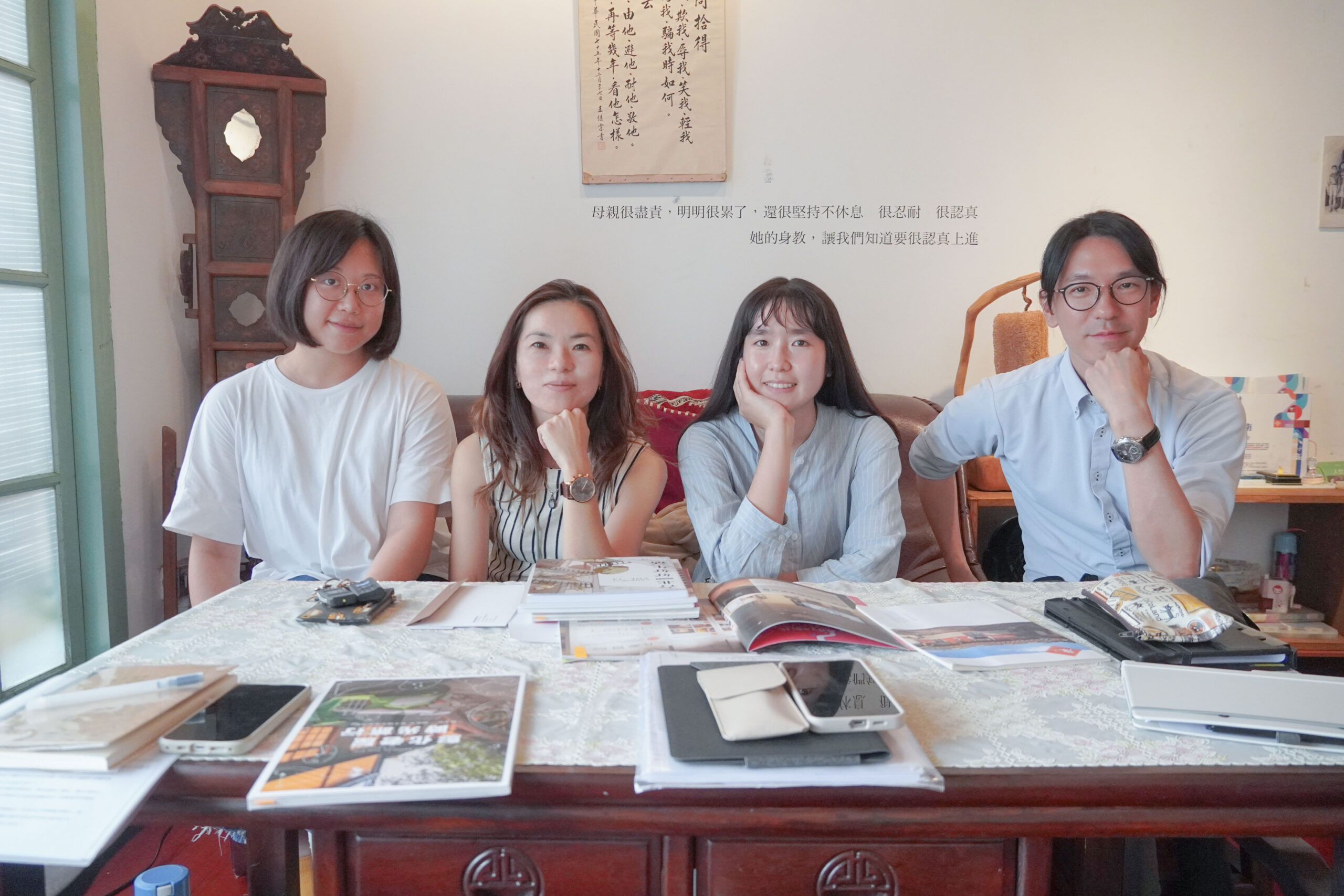
The Old Medical Hall at a Crossroads
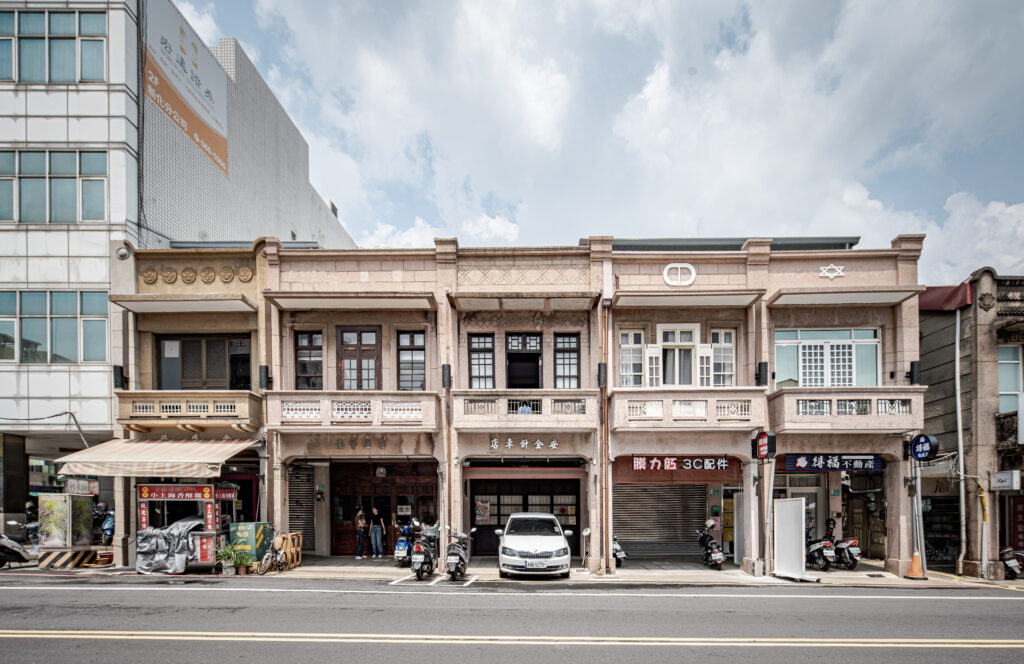
The current streetscape of Xinhua Old Street took shape primarily in the 1920s. Under the Taiwan Governor-General’s Office urban improvement plan, the former mountain-to-capital trade route, Zhongzheng Road, was widened, and the buildings along it were uniformly renovated. From 1921, the west-side shophouses were rebuilt with washed stone finish and Art Deco parapets. Their east-side counterparts followed in the 1930s with a modernist style, creating a unique streetscape defined by this architectural contrast.
“Huisheng Hospital” (1929-32) on the old street’s east side features a facade of lines and geometric shapes, showcasing the new architectural style of its time. Since its completion, this shophouse has continuously served as a medical facility for the local community, going through phases as Liu’an Hospital and a dental clinic, before becoming widely known as “Huisheng Hospital.” In the end, the medical hall closed its doors, and the old house stood empty and silent for nearly thirty years.
In 2018, while restoring the rice milling machine for “Jinfa Rice Shop,” the Shanhaitung team made an alarming discovery across the street: the long-sealed Huisheng Hospital was having its walls demolished. Upon inquiry, the team learned that the owner’s descendants, distant and unable to handle upkeep, had leased the property to a claw machine arcade. This contextless commercial venture stood in stark contrast to the team’s preservation work, sparking local debate on old house revitalization and ultimately prompting the hospital’s regeneration.
Inspired by Shanhaitung’s work on nearby projects, the owner of Huisheng Hospital recognized the potential for historic buildings to integrate creatively with community life. This led them to commission the team in 2021 to chart a new course for the space’s regeneration.
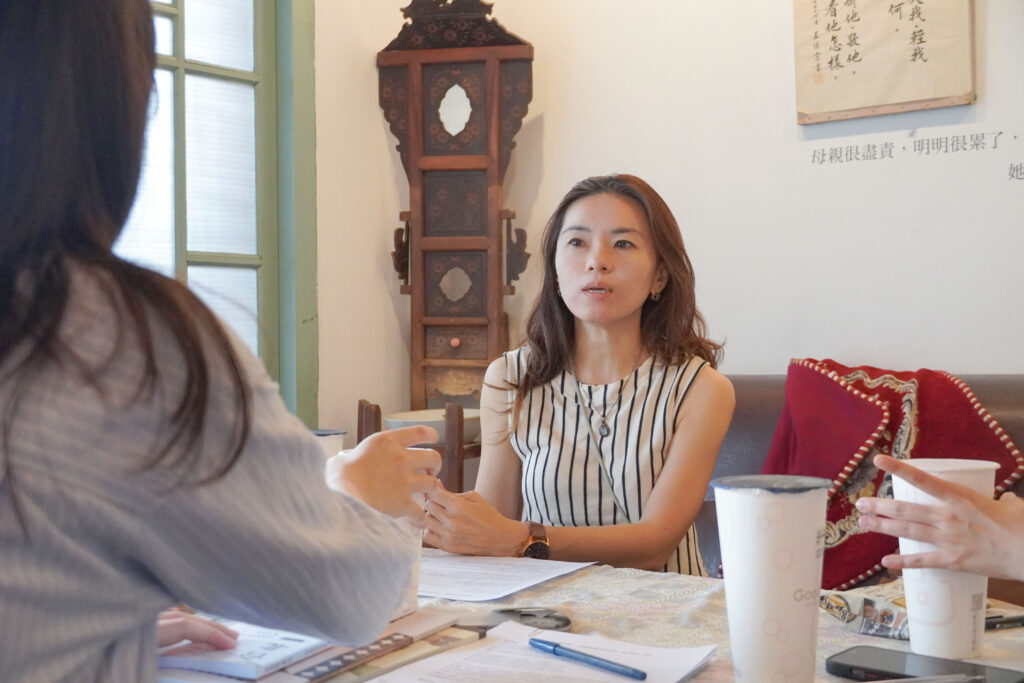
Place-Making Initiative Through Design Thinking
In 2023, after restoration, Huisheng Hospital reopened with a new identity. The ground floor is the ‘Big Cat Bookhouse’ children’s lab, complete with a tatami reading area and experiential courses, while the upper floor is home to the Shanhaitung social enterprise team. Huisheng Hospital now joins Longtai Western Pharmacy, Jinfa Rice Store, and the Safety Pin Sewing Shop as part of a “Museum of Life Stories”—a network of revitalized spaces scattered throughout the district.
To CEO Su, coming back to Xinhua was a homecoming that blended emotional roots with professional mission. Her deep roots in Xinhua gave her an emotional connection to the town, while her professional experience in business and marketing provided a pragmatic outlook. This allowed her to see the limitation of its tourism: a hundred-meter-old street where most visits were fleeting, amounting to little more than grabbing a snack and moving on. Over time, this not only prevents visitors from understanding the local culture, but the cultural essence of the old street itself may gradually be hollowed out amid commercial trends.
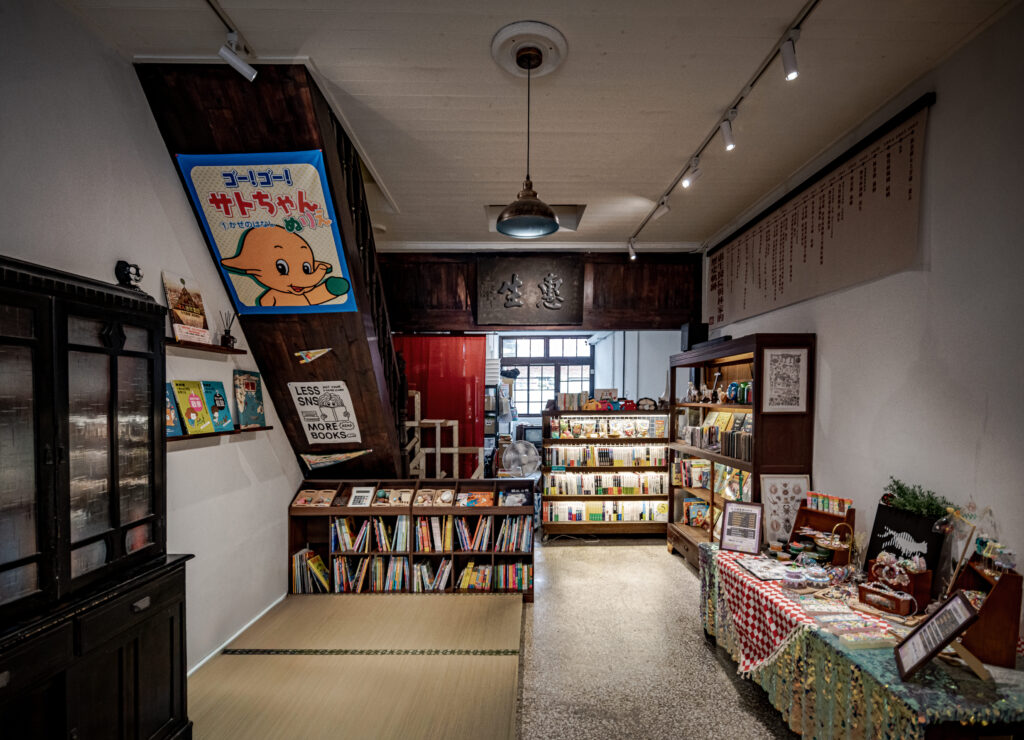
To address this, CEO Su Wan-t’ing focused on a central question: how could Xinhua Old Street develop a sustainable business model? “For people to stay and connect, the old street must offer a seamless, experiential journey that inspires them to discover its stories.”
Shanhaitung Social Enterprise treats the old street as a single entity. Through design thinking, they map local resources and needs, using old houses as the tool to address what’s missing. Huisheng Hospital exemplifies this strategy. Recognizing the street’s residential nature, it was converted into a children’s learning space. The ‘Big Cat Bookhouse,’ run by a startup, now serves as a local creative base, creating new visitation incentives and customer groups. This model is replicated across other old houses, featuring rice culture centers, farm product displays, and independent bookstores. Each project is a curated effort to improve street functions, enrich visits, and turn tourism into a deeper cultural journey.
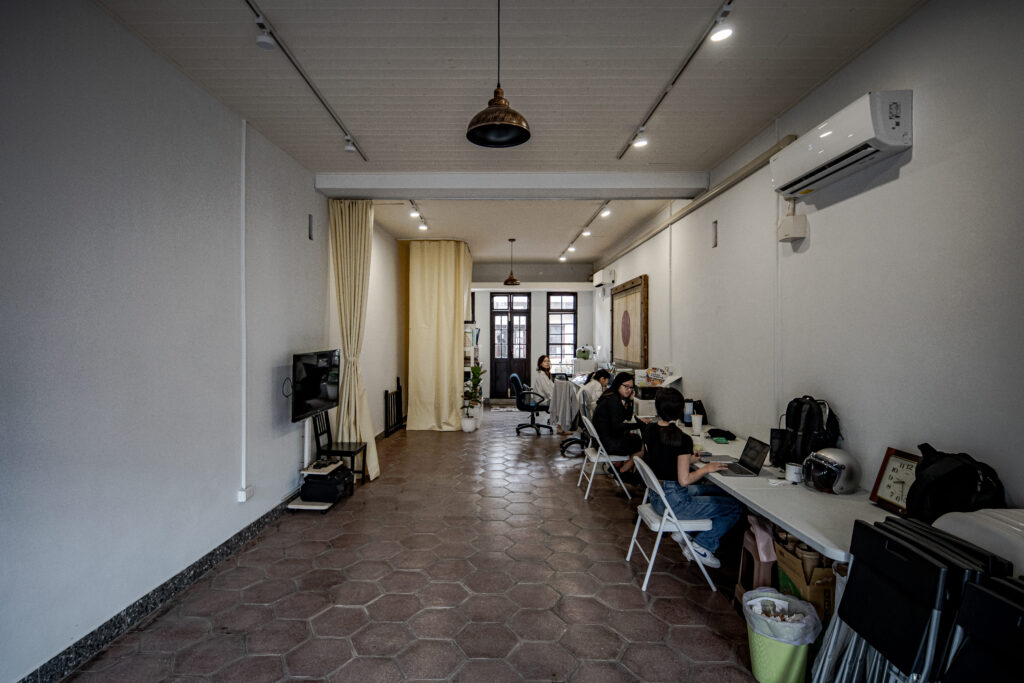
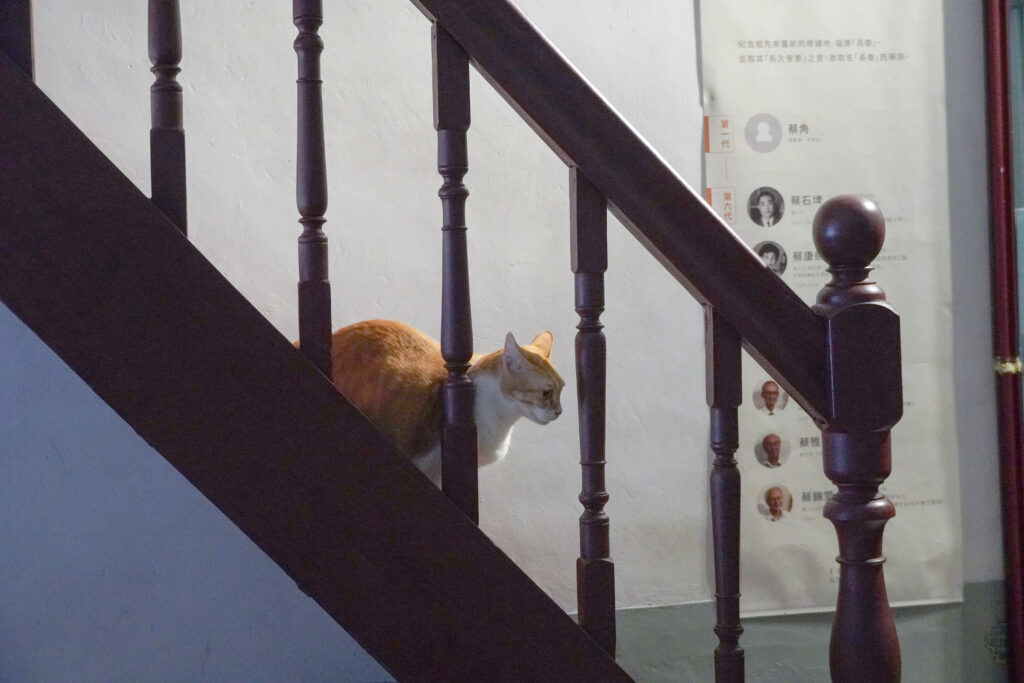
For Shanhaitung, a viable business model is the skeleton, and culture and emotion are the soul. Through preserving old houses, we hope to revive forgotten stories and create dialogue between local life and visitors. Through thoughtful planning, we create a refined balance between history and modern function, bringing new value to all.
Discover the full story of the ‘Xinhua Huisheng Hospital’ and other revitalization projects in the X-Basic team’s new book, coming this August. Keep an eye out for it!
